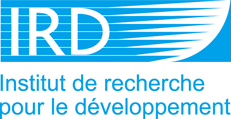Mark Wilson
Mark Wilson is an ecologist and epidemiologist with broad research interests in infectious diseases, including the analysis of transmission dynamics, the evolution of vector-host-parasite systems, and the determinants of human risk. Most projects address environmental and social variation in time and space as it impacts on vector and reservoir populations and pathogen transmission patterns. Recent efforts have been directed at various "emerging" diseases including malaria and schistosomiasis in Africa, leishmaniasis in the Middle East, and dengue fever in South America. In addition to standard field, lab, and statistical techniques, he has been using satellite image data and GIS to undertaken spatial analyses of environmental change and the ecology of risk. Spatial analytic tools are also being applied to non-infectious disease processes. To learn more, please visit his webpage on the University of Michigan Website.
Integrating social sciences into the equation?
Health researchers have long recognized the importance of social factors in understanding disease patterns. From the fields of sociology, psychology, economics, ecology, even engineering, efforts have been made to consider how social variables influence health and wellbeing. The multidisciplinary nature of "social" is both exciting and challenging, and has produced diverse conceptualizations and methodologies. This presentation will offer some frameworks for considering more "upstream" social drivers that may modulate, condition, compensate for, or exacerbate climate influences on infectious disease risk. Some examples will be used to illustrate the challenges of integrating social conditions into analyses of disease patterns in the context of environmental variation.
If you wish to contact Mark Wilson, please click here




